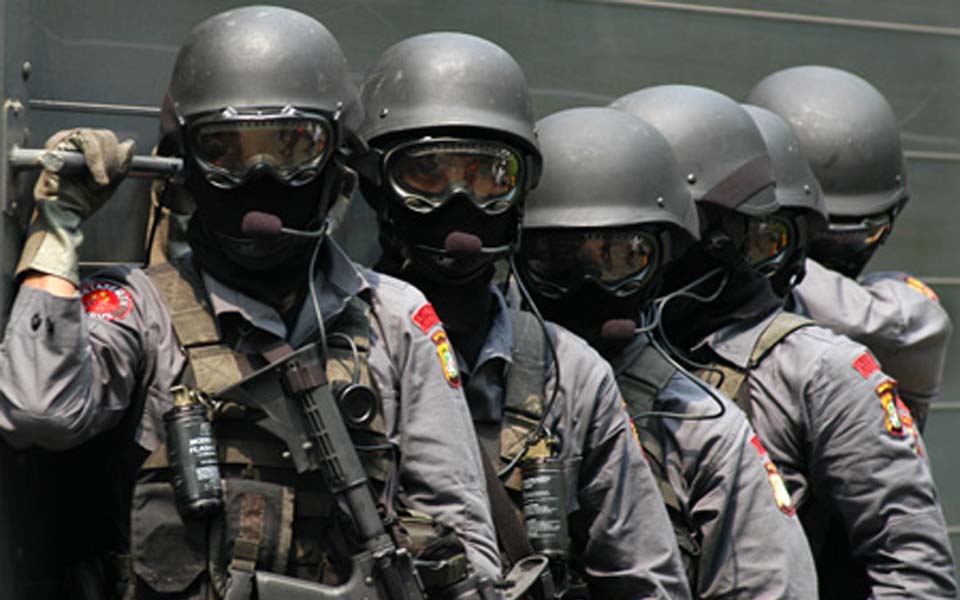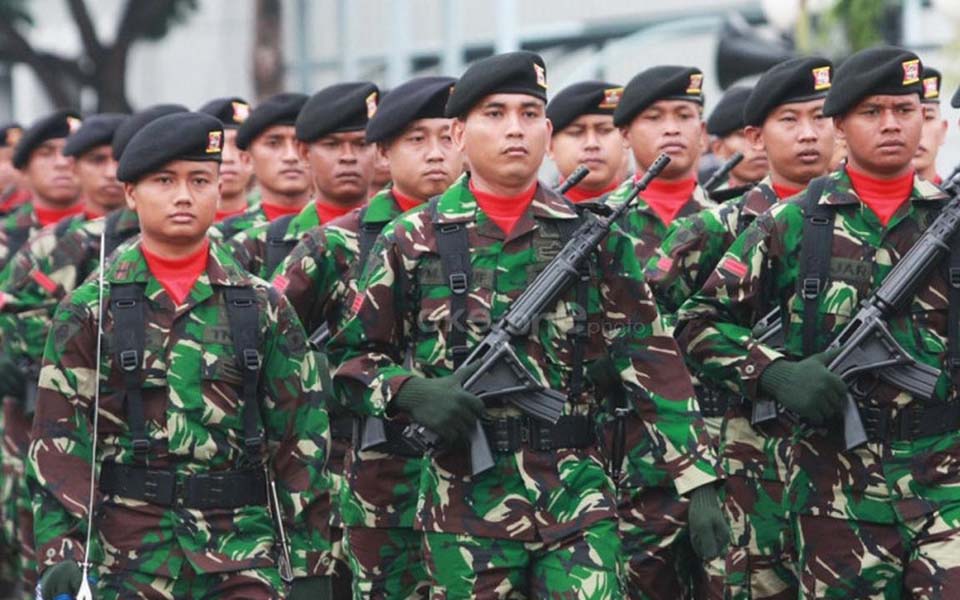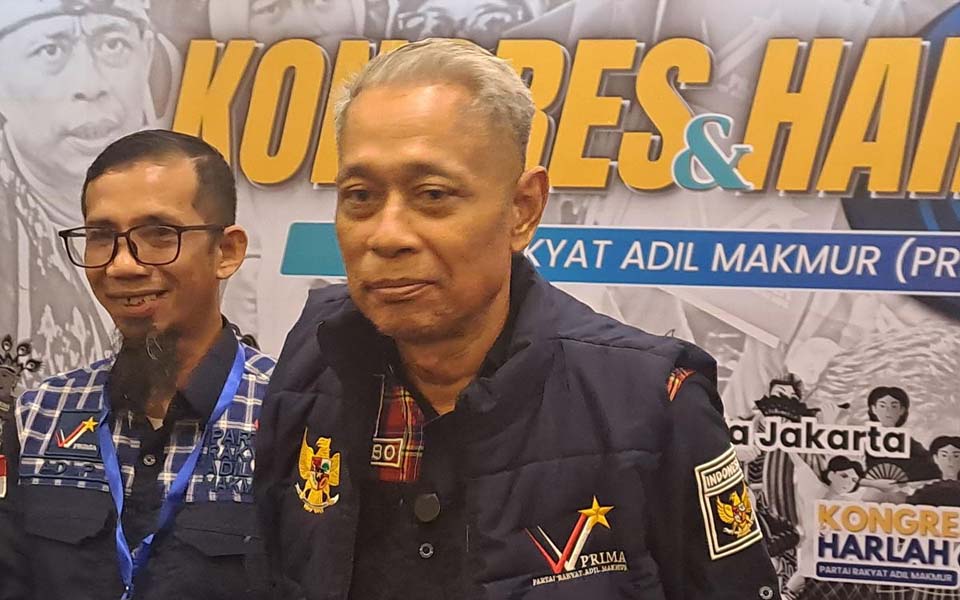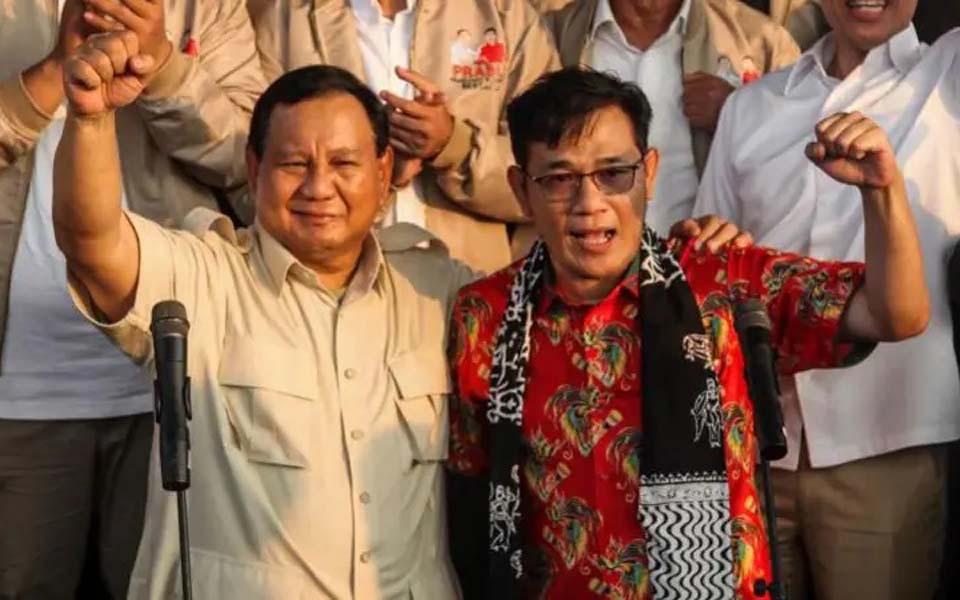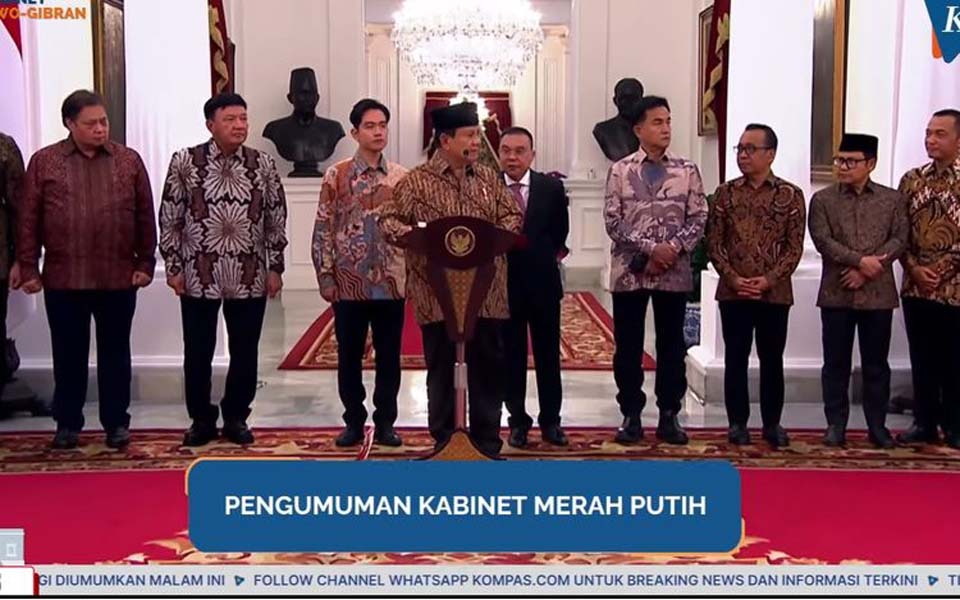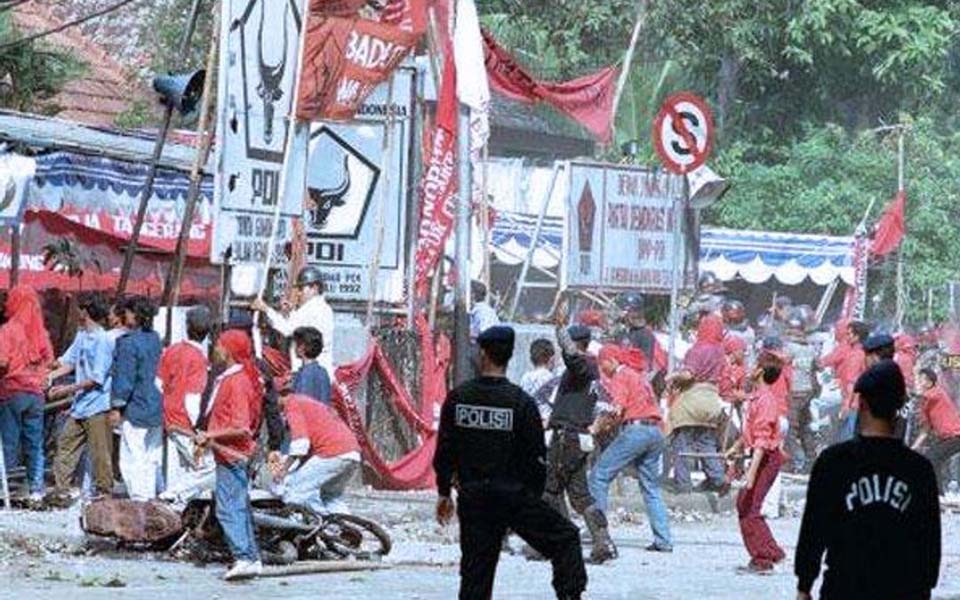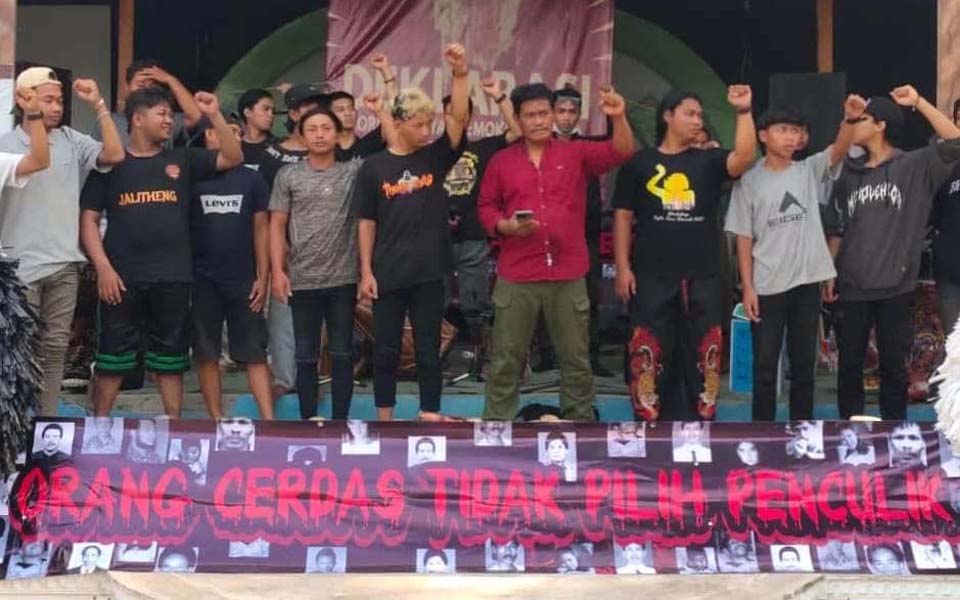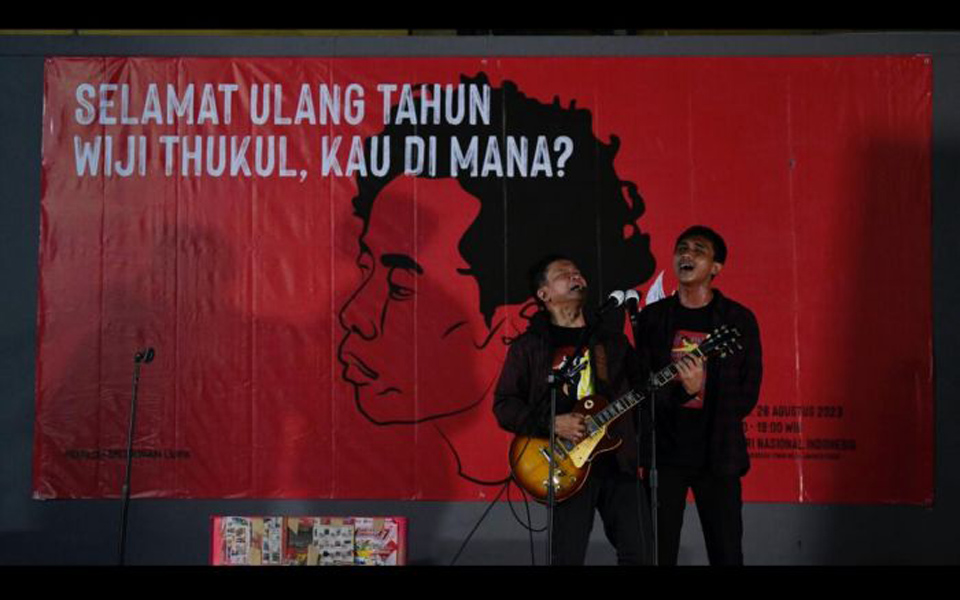On October 12, the world was shocked by the explosion at the Sari Club on Legian road in Kuta, Bali. It is appropriate that we feel great sorrow and condemn the bombing which killed almost 200 people. The perpetrators of the bombing must be arrested and tried as quickly as possible.
This incident has smeared the name of the government of President Megawati Sukarnoputri and Vice-president Hamza Haz in the eyes of the international community. The Mega-Haz government is seen as ignoring US warnings with regard to the existence of terrorists in Indonesia. It has been proved that they failed to guarantee security under their administration. In order to save face in the international community and within Indonesia itself, it is shielding itself against [the political ramifications of] the bombing in Bali by promulgating an anti-terrorism government decree.
It is as if terrorism has become the new specter which must be snared with “rubber” articles in the anti-terrorist regulation. But the Mega-Haz regime is closing its eyes to the principal reason for acts of violence/terrorism and instead blaming the “failure” (deliberate or otherwise) on the lack of professionalism of state institutions in maintaining the safety of civil society under its control.
According to the police headquarters, prior to the Bali bombing, over the last two years there have been no less that 170 cases of bombings which have killed more than 50 people and injured and maimed 300 more: the Christmas church bombings, the Jakarta Stock Exchange bombing, the bombing in front of the Philippines Embassy and the bombing of the Cijantung Mall. And these cases do not including the bombings in a number of regional conflicts such as have occurred in Aceh, Sampit, Poso, Ambon and West Papua. Last year, 52 cases were uncovered with the arrest of more than 80 suspects. The series of church bombings on Christmas Eve, the Stock Exchange bombing, the bombing in front of the Philippine Embassy, the Cijantung Mall bombing, or the Binjai case [when troops attacked a police office in North Sumatra] and hundreds of other acts of violence which have occurred are clear examples of the inability of the Mega-Haz government and the governments before them to make use of the authority of force. Moreover there are indications of intentionally not exposing these bombings which involve members of the armed forces.
All of this rhetoric is an attempt to cover-up this failure based on the alleged lack of security being experienced by society because the political role of the military has been reduced or the socialisation of security by giving a greater role to the police. In fact the authority of the state institutions power is already very great. During the process of reformasi, the military were cornered by demands to return to the barracks, that the military become a professional institution which is not involved in political affairs which became the grounds for the government to wash its hands and divert social responsibility to society.
From this we can see the real direction of the Anti-Terrorist decree: no less than to restrict democratic space or beat back the democracy that has progressively been achieved. It also gradually legitimises the military’s return to the cooking pot of politics. The Anti-Terrorist decree is therefore a new form of attack, state terrorism against the political freedoms of civil society.
Fighting terrorism cannot be done through again terrorising the people, but in creating a world order which is more just, humane and with values that guarantee democracy for all citizens. Defeating terrorism with terrorist methods obviously will not defeat terrorism itself, but will result in the emergence of terrorist forces which are broader and more radical, because in this they will find their justification. Post September 11 many criticisms have been presented which cite the roots of the problem of terrorism as the new world order that is being forced on the world by the US after the Cold War, a world order which is full of inequality and injustice which is the trigger for the emergence of radical movements.
There are a number of basic articles in the decree which can be used by the authorities to snare anyone [they wish] in the interests of protecting their authority:
Firstly, the definition of terrorism as an extraordinary crime opens up the possibility of it being used against other crimes, in particular political crimes. The impact of this regulation is to further restrict the people’s democratic space in struggling for their political rights. At the same time, the government can easily manipulate the political struggle of the people to be defined as an act of terrorism. We can see, in the haziness of the definition of terrorism and the characterisation of its perpetrators it is being used intentionally against those who are resisting politically. In other words, this decree is another kind or new form of the Anti-Subversion laws [which was repealed after the overthrow of former President Suharto].
Secondly, contradictions and inconsistencies can be found in the construction of the legal and political logic of the decree. Particular articles can be invalidated by other articles, most importantly in the rhetoric about the guarantees of the freedom to publicly express an opinion, protest, strike and carry out advocacy (see the part I, General Stipulations, number 8 in the decrees explanation section). These political rights are invalidated by other articles on disturbing public order, creating fear.
Thirdly, the decree is extremely flexible and interpreted in multiple ways. As a result the decree can be used at any time and place in accordance with the interests of the authorities as that may be in power. However, what is certain is that this decree is extremely discriminatory because it only applies to civil society while it has no authority to control how state security is carried out (read: violence perpetrated by the military/state).
Fourthly, quite nakedly the decree protects the interests of global imperialism. This is stated explicitly in the explanation that reads: “Terrorism is an activity of international character which is organised. And the extension of international terrorism is often related to the existence of global injustice so the government and nation of Indonesia are obliged to increase surveillance...”. The government therefore rejects all of the reasons for global injustice as the cause of terrorism.
Because of this, in addressing the bombing incident in Bali, the parties which must be called to responsibility are President Megawati, Vice-president Hamza Haz, the Minister for Political and Security Affairs, the head of the National Intelligence Body and the Chief of Police. They must relinquish their posts because of their incompetence in managing the security of the state and society.
We also call on all people in society, from the different democratic forces, to reject the promulgation of this decree by holding mass actions and setting up neighbourhood resistance command centres which can function to safeguard security in an independent manner in the midst of the state’s inability to guarantee the security of society.
Replace the Mega-Hamzah government now!
Form a government of the poor people!
Jakarta, October 19, 2002
Central Leadership Committee of the People’s Democratic Party
Haris Rusly, Chairperson
Natalia Scholstika Ch, Secretary General
[Translated by James Balowski.]





